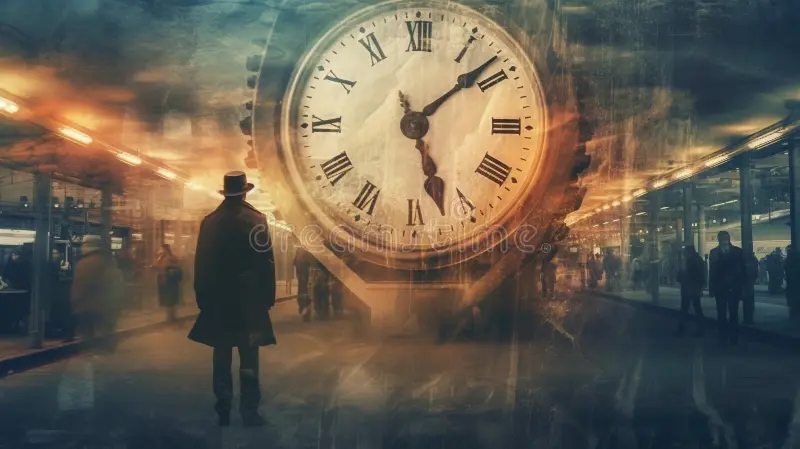Time travel has long fascinated humanity, captivating the imagination of scientists, writers, and dreamers alike. The concept of journeying through time, either into the past or the future, raises profound questions about the nature of reality, causality, and the limits of human understanding. This article delves into the scientific theories, fictional portrayals, and speculative instances surrounding time travel, exploring whether it is a mere myth or a potential reality.
Time Travel in Science: Theoretical Foundations

Einstein’s Theory of Relativity
Albert Einstein’s theory of relativity, formulated in the early 20th century, provides the most robust scientific foundation for time travel. According to Einstein, time is not an absolute constant but is intertwined with space to form a four-dimensional fabric called spacetime.
- Time Dilation
One of relativity’s implications is time dilation. When an object moves at a speed close to the speed of light, time slows down for it relative to a stationary observer. This phenomenon has been experimentally verified, for instance, using precise atomic clocks on fast-moving spacecraft. While this proves that time travel into the future is theoretically possible, it remains a challenge to achieve on a human scale. - Wormholes
Another theoretical possibility for time travel arises from the concept of wormholes, also known as Einstein-Rosen bridges. These hypothetical tunnels could connect two distant points in spacetime, allowing instantaneous travel between them. If one end of a wormhole were accelerated to near-light speeds and then brought back, it might enable travel into the past or future. However, this idea remains speculative due to the lack of empirical evidence and the potential instability of wormholes.
Time Travel in Fiction: Popular Instances
Time travel has been a staple of science fiction for over a century, with countless stories exploring its possibilities and paradoxes. Some of the most notable examples include:
- H.G. Wells’ The Time Machine
Published in 1895, this novel popularized the idea of a machine capable of traveling through time. Wells’ story explores themes of social evolution and the consequences of technological advancement. - Back to the Future (1985)
This iconic film series brought time travel into mainstream entertainment, introducing the “flux capacitor” as the fictional mechanism for traversing time. It also highlighted the grandfather paradox, a common thought experiment questioning the consequences of altering past events. - Doctor Who
The long-running British TV series features the TARDIS, a time machine disguised as a police box, and delves into the complexities of time loops, paradoxes, and alternate timelines.
Time Travel in Speculative Claims and Myths
Over the years, various individuals have claimed to have experienced time travel. While these accounts often lack credible evidence, they make for intriguing stories:
- The Philadelphia Experiment (1943)
This alleged U.S. Navy experiment purportedly involved a warship being rendered invisible and transported through time. Though widely debunked as a hoax, it remains a staple of conspiracy theories. - John Titor
In the early 2000s, an individual claiming to be a time traveler from 2036 posted detailed accounts online. He provided intricate descriptions of his time machine and made several predictions, many of which failed to materialize. - Time-Slip Phenomena
Some people have reported experiencing “time slips,” where they briefly perceive events or surroundings from another era. While intriguing, such incidents are often attributed to psychological or environmental factors.
Challenges and Paradoxes of Time Travel
Time travel is rife with paradoxes that challenge its feasibility:
- The Grandfather Paradox
If you travel back in time and prevent your grandfather from meeting your grandmother, would you cease to exist? This paradox questions the consistency of cause and effect. - The Bootstrap Paradox
This occurs when an object or information is sent back in time and becomes the cause of itself in the future, creating a loop with no clear origin. - Energy and Practicality
Even if time travel is theoretically possible, the energy requirements and technological advancements needed to achieve it are far beyond our current capabilities.
Could Time Travel Be Real?
While time travel into the future is supported by physics (e.g., time dilation), traveling into the past remains speculative. Theoretical models like wormholes or closed timelike curves provide tantalizing possibilities, but practical implementation faces immense scientific and technological hurdles.
Final Thoughts
Time travel occupies a unique space between myth and reality, blending scientific possibility with human imagination. While it remains firmly in the realm of theory and fiction for now, advances in physics could one day bring us closer to unraveling its mysteries. Until then, time travel continues to inspire curiosity, creativity, and a profound sense of wonder.


